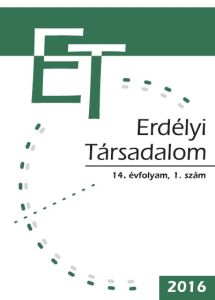
LEADER: eredmények és problémák helyi szinten
Leo Granberg, Kjell Anderson és Kovách Imre (szerk.): Evaluating the European Approach to Rural Development: Grass-Roots Experiences of the LEADER Programme. ASHGATE, 2015
More...We kindly inform you that, as long as the subject affiliation of our 300.000+ articles is in progress, you might get unsufficient or no results on your third level or second level search. In this case, please broaden your search criteria.

Leo Granberg, Kjell Anderson és Kovách Imre (szerk.): Evaluating the European Approach to Rural Development: Grass-Roots Experiences of the LEADER Programme. ASHGATE, 2015
More...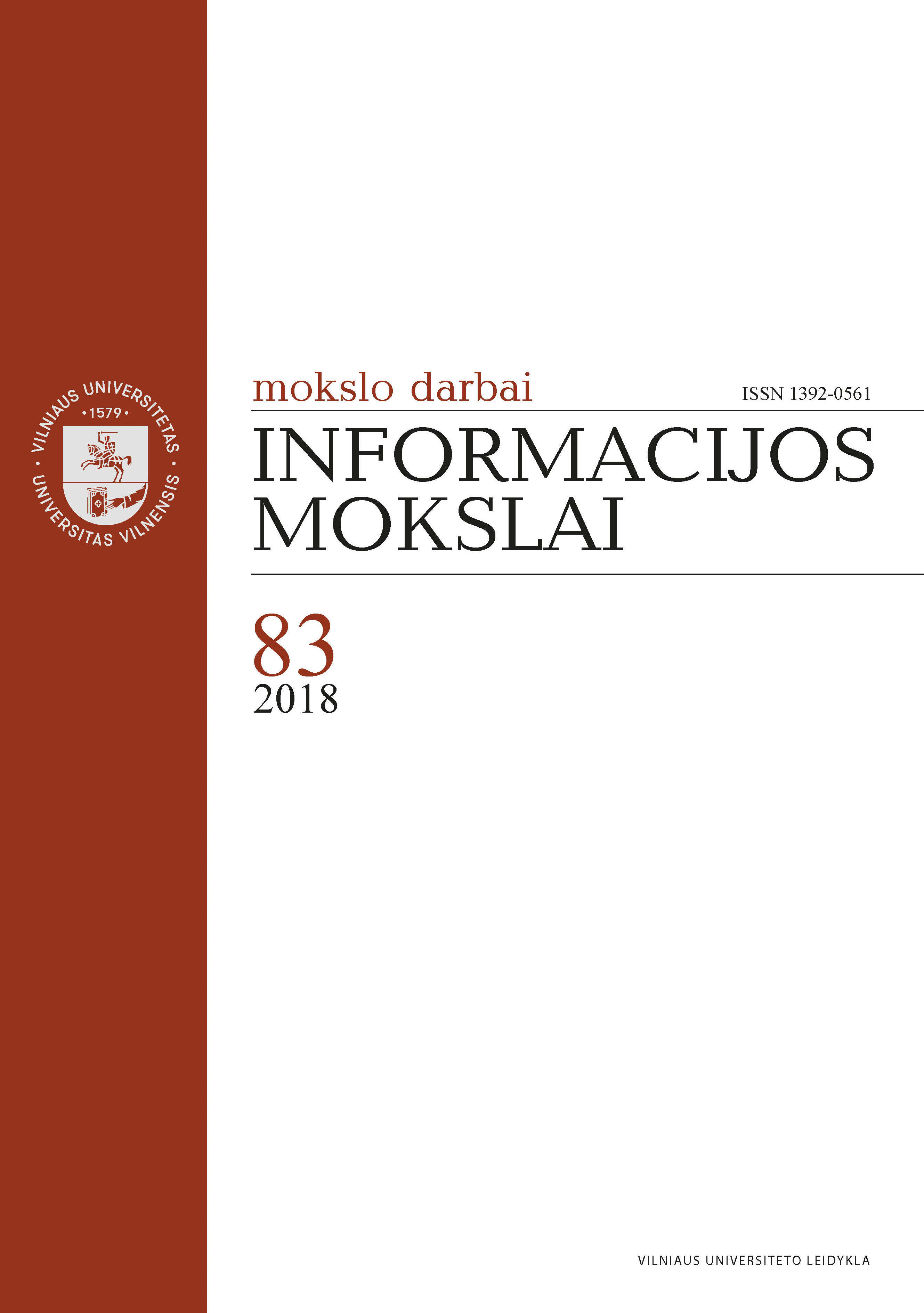
In order to solve issues of a company’s daily activities and predict further development directions in the current conditions of the ever-changing market environment, it is crucial for managers to have the right information at their disposal. Both the excessive information and the lack of it constitute the basis for inefficient or even disastrous decisions. Controlling is an efficient informative system that can provide managers with data needed for efficient management decisions. A properly designed controlling system can provide various information on all the areas of activity. Thus, when creating such a system, it is important to evaluate the possibilities of a controlling system, which are best revealed by a controlling system analysis and evaluation. The article analyzes the possibilities of information provided by a controlling system in terms of evaluating controlling types and models. Such an evaluation creates possibilities to perform a cross-cut analysis of the characteristics of the provided information and define what is the content and scope of information that managers receive from a controlling system. The article reveals that in the context of information provision for a company, strategic and operational controlling are to be considered the most significant ones. Strategic controlling provides information on how to do the right activity, whereas operational controlling – on how an activity can be done right. The goals of a company can be achieved only through both of them. Tactical controlling is what connects strategic controlling to operational controlling; its paradigm can be expressed through two questions: 1) how to do the right activity right? 2) what should be done when a wrong activity is being done or the activity is being done wrongly? Information provision for the answers to these questions would ensure a direct relation and feedback of strategic and operational controlling. After analyzing the typologization of controlling based on its origin, it was identified that the two main schools of controlling practice exist that led to the development of two different models of controlling: the Anglo-Saxon (American) and European (German). An exemplary controlling model adapted for Lithuanian companies was prepared after comparing the American and German controlling models and evaluating them on the basis of the scope of tasks, dominant orientation, the role of the controller, and the information base. On the basis of this adapted model, an individual information provision controlling system can be created for any Lithuanian company. This article analyzes other types of controlling as well, evaluation of which is important when creating an efficient system for controlling information provision in a particular company.
More...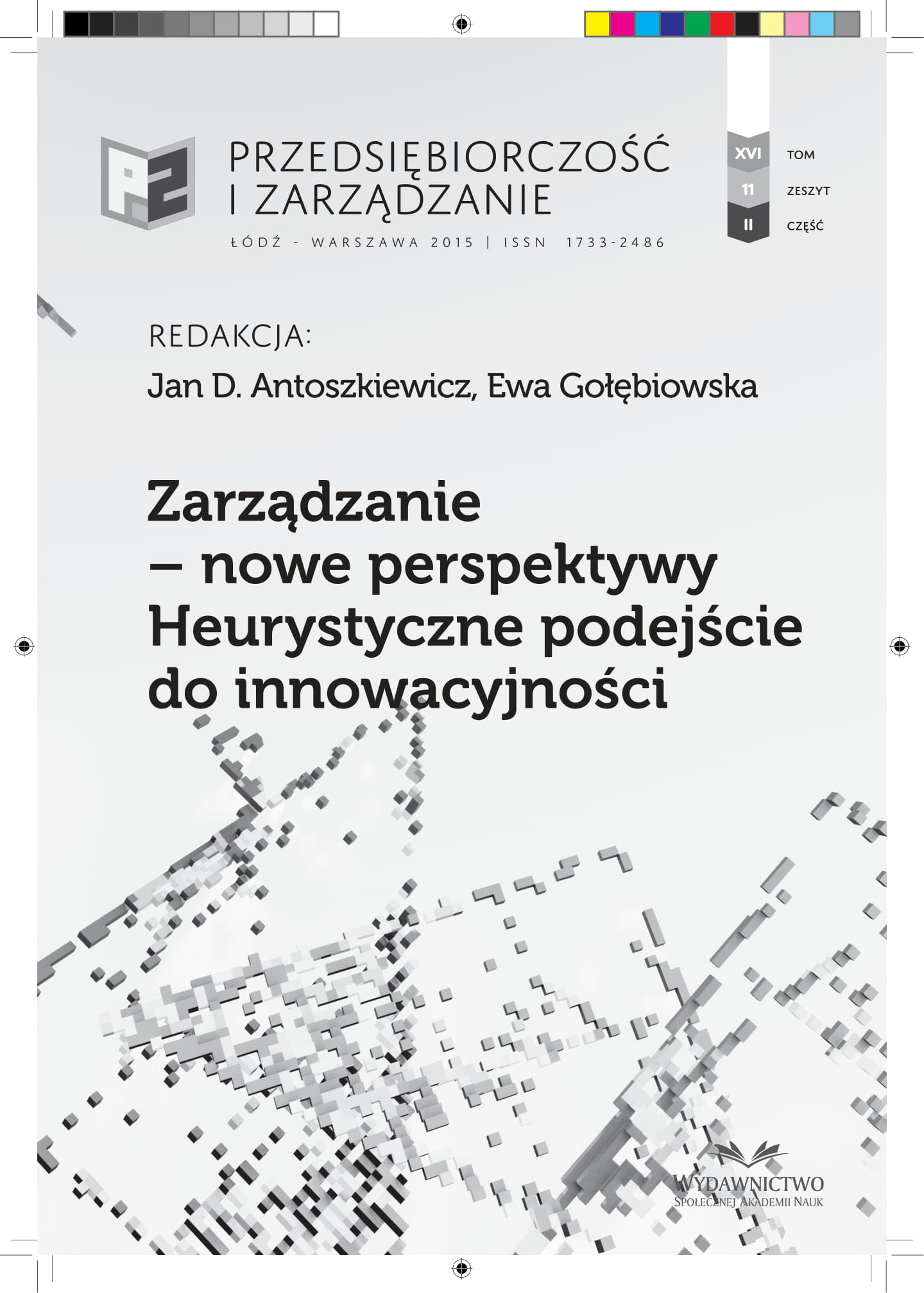
The article constitutes an introduction to an interesting subject for engineers and economists, which is the analysis of working time. The brilliant tool, which MTM (Methods-Time-Measurement) undoubtedly is, after a short training combined with experience bears outstanding results for a given company – saves time, money and reduces the time dedicated to the indispensible training of entrants. The information that the article includes, related to the beginnings of MTM and its implementations in companies, prove the excellence of the tool. The article presents how to reach perfection in production processes through the application of key formulas characteristic of MTM, as well as ergonomics of creating positions and arranging the order of activities.
More...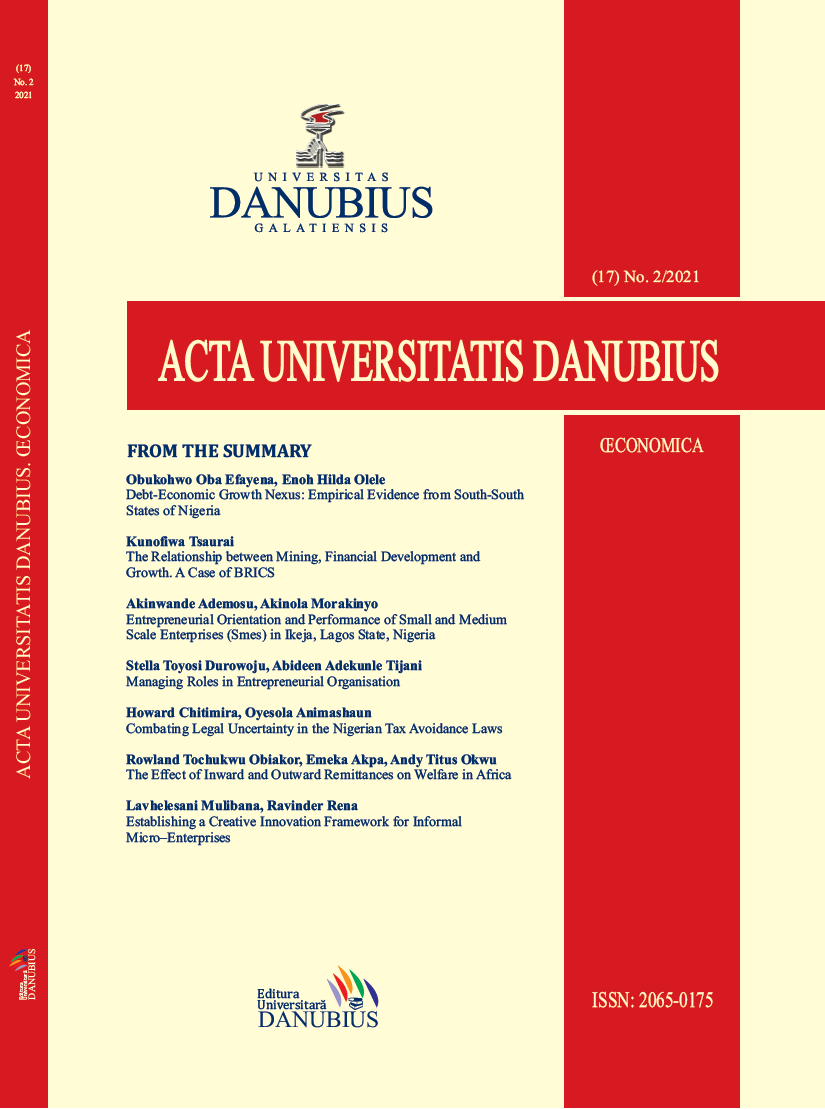
The study investigates the relationship between EO and SMEs’ performance using 96 SMEs in Ikeja, Lagos State, Nigeria. The three domains of EO namely innovation, pro-activeness and risk taking are the focus of the study. Structured questionnaire is used to elicit responses from the SMEs’ entrepreneurs. The responses are subjected to both descriptive and inferential analysis under quantitative technique. The result from the analysis shows that strong synergy exists between risk taking and pro-activeness. Findings further indicate that for EO to have significant impact on SMEs’ performance, the orientation of the entrepreneurs must be the one that brings about a strong connection between their drives for risk- taking and pro-activeness. This means that SMEs’ entrepreneurs should not only take risk or innovate but must be proactive with the two to achieve sustainable outstanding performances in their businesses.
More...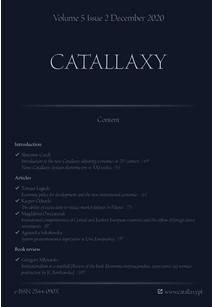
Motivation: Economists have increasingly emphasized the importance of institutions as a fundamental factor for economic development. However, too frequently institutional approach used in economics is simplified, both from the starting point in defining an institution and during the analysis itself. Aim: The aim of this article is to summarise the current state of knowledge on the use of the institutional perspective in the research on the economic development of developing countries. Materials and methods: The analysis is conducted from the perspective of the new institutional economics. The article uses the qualitative analysis method that includes a literature review and descriptive analysis. Results: The first part briefly describes the contribution of the new institutional economics to the research on the economic development. The second part demonstrates how the institutional perspective is used in the mainstream economics, while the third, how it is used in the development economics. Although the contribution of the new institutional economics to the development theory is significant, in practice, it is very difficult to provide clear guidelines for development policy. This is the reason why there is a huge difference between researching economic development in the spirit of the new institutional economics and how institutions are implemented in the mainstream and development economics.
More...
The diversity of development levels of various countries cannot be justified by better natural conditions. The so-called paradise islands are not its leaders, while some countries having difficult natural conditions (Scandinavia, Japan) are among the civilisation leaders of the world. However, as it turns out, the implementation of solutions selected from there brings limited success. Historically, this is a new situation. The assembly line production from Ford’s factories was used effectively around the world, so were fast-food chains or containers in transport. Today, however, it is difficult to find such spectacular examples. This may surprise, as, still, there are significant differences in the efficiency of the economies of individual countries. In Europe, the gap between North and South does not decrease, and the United States and Mexico are far apart in this respect. And yet, with few exceptions, almost all economies are now open to the goods that are proven solutions. Even if everything cannot be transformed quickly according to the best models, progress should be achieved gradually by adapting individual elements of the economy in question along the lines of the best solutions, for example, used by the neighbouring countries. In this way, the development gap would slowly narrow down, or at least it would not widen. Yet, this method does not yield significant results. The reason seems to be the increasing integration and complexity of national manufacturing systems. This can be seen above all in the attempts to adapt foreign pro-innovation systems. Does this mean that such an implementation is not possible at all? Well, no. While it is ineffective to adapt the environment from above, it can be successful in triggering a process of self-adaptation that goes deep into the whole system. But it is a difficult operation, requiring a non-traditional (non-static) system approach.
More...
The aim of the article is to characterize the concept of Smart Industry, to present the activity of Polish enterprises and to identify opportunities and barriers resulting from the implementation of modern technological solutions. During the preparation of the article author used the literature of the subject and industry publications, including foreign-language ones. Books, articles, consulting companies’ research results, statistical data, magazines, information from internet sources were also used during the preparation of the article. The world of modern technological solutions is not yet fully researched and defined, but it is characterized by enormous opportunities that can be used by various enterprises and economies to achieve their strategic goals. This publication justifies the sense of implementing modern technological solutions, systematizes the position of Poland and Polish enterprises against the background of European countries, describes Smart Industry concept and indicates possible opportunities and barriers to the development of innovation.
More...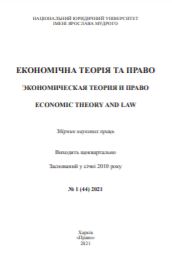
The participants have substantiated contemporary tendencies and models for ensuring the competitiveness of economic entities grounded in system innovations and forming new competitive advantages in various industries under modern digital transformations. The participants have disclosed socio-economic effects of innovation clusters, competitive advantages of the IT industry in Ukraine, small business, insurance, providing the quality of labour force, and enterprises’ competitiveness security. The participants have substantiated the influence of quality of institutions, corporate culture, and ethics on competitiveness of economic entities. The participants have revealed the role of consulting in innovative changes of competitive advantages of business, new characteristics of competitive consulting, and customer centricity of business consulting as the basis for its competitiveness.
More...
The participants have substantiated contemporary tendencies and models for ensuring the competitiveness of economic entities grounded in system innovations and forming new competitive advantages in various industries under modern digital transformations. The participants have disclosed socio-economic effects of innovation clusters, competitive advantages of the IT industry in Ukraine, small business, insurance, providing the quality of labour force, and enterprises’ competitiveness security. The participants have substantiated the influence of quality of institutions, corporate culture, and ethics on competitiveness of economic entities. The participants have revealed the role of consulting in innovative changes of competitive advantages of business, new characteristics of competitive consulting, and customer centricity of business consulting as the basis for its competitiveness.
More...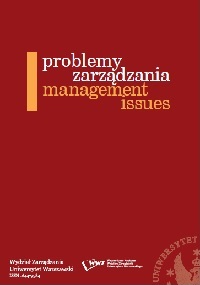
Purpose: The purpose of this article is to present selected models for development of an innovation network in clusters from the perspective of network relations. Design/methodology/approach: The argumentation draws upon the literature on the concept of the network and on the results of research of other authors related to the activity of companies in clusters. Findings: Hierarchical relations between the dominant company and suppliers using its technology offer limited possibilities of innovation creation. Such an influence on the position of the company is exerted by “producer networks” where the leading company defines the conditions of production and supply and provides technology. Discovering new knowledge and creating innovation usually requires heterarchical relations where the power and decision-making process are decentralised and managerial competences and skills are balanced and dispersed among network participants. This case is represented by “buyer networks” where the leading company formulates expectations for product characteristics and the subcontractor responds to these requirements using its own development and design solutions. Research limitations/implications: The research is based on the theoretical literature on the concept of the network and on the results of empirical research of other authors related to the activity of companies in clusters. Originality/value: The article broadens the area of research in the field of cluster and network relations as well as indicates the possibility of using this knowledge in entrepreneurs’ decisions.
More...
This paper analyses risk perception and attitudes toward risk in Albanian society. It principally focuses on how age affects risk tolerance, even though also gender impact is taken into account. To particular interest is the shift in risk perception of the individuals before and after the fall of communism. The authors have embraced an exploratory research, using qualitative data from interviews. By considering two groups of participants, those older than 35 and younger than 35, the paper makes distinctions between risk attitude of both groups. In addition, the differences in responses between genders have been analyzed. The paper draws conclusions on the role of age and gender in relation to risk perception by aligning it with main conclusions of academic literature on these aspects. It further discusses the role of the social environment before and after the fall of communism and its effect on the risk tolerance profile of Albanians.
More...
The existing digital revolution has also led to a very intensive development of electronic commerce, not only in developed markets, but also in the market of the Republic of Serbia. In a short period of time, the expectations and behaviors of consumers in the buying process have changed, but also the thinking and actions of retailers themselves have been redefined and redirected. Regardless of all the advantages that e-commerce brings with it, as possible obstacles to its further development, open questions arise regarding consumer confidence. A developed and modern legal framework that comprehensively regulates this area, as well as its full implementation in practice are the best basis for overcoming these obstacles. In recent years, the Republic of Serbia has done a lot to improve the legal framework governing e-commerce, primarily through innovations in the Law on Trade, the Law on Electronic Commerce and the Law on Consumer Protection. The results of this are already clearly visible in practice.
More...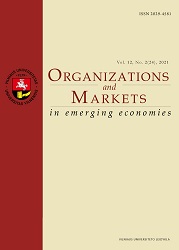
This study is an attempt to examine the impact of currency misalignment on the trade balance of emerging market economies from 1980 through 2016. It firstly measures the equilibrium RER and corresponding misalignment series of 21 EMEs separately adopting a single equation approach and then includes them in the trade regression together with undervaluation and overvaluation to estimate the dynamic relationship between the trade balance and real exchange rate misalignment employing the system generalized method of moment estimation approach. The study suggests that, being a composite series of undervaluation and overvaluation, higher real exchange rate misalignment helps recover trade imbalances. It also identifies that undervaluation improves trade balance, while overvaluation cuts it down. The study identifies that the misalignment series of RER for most of the EMEs are substantially dominated by overvaluation episodes, and hence the opposing impact of undervaluation and currency misalignment on the trade balance of EMEs is not surprising. From the policy perspective, competitiveness achieved through currency movements helps emerging market economies not only to improve trade balance but also to withstand vulnerability that arises from huge external borrowings creating a strong external payment position.
More...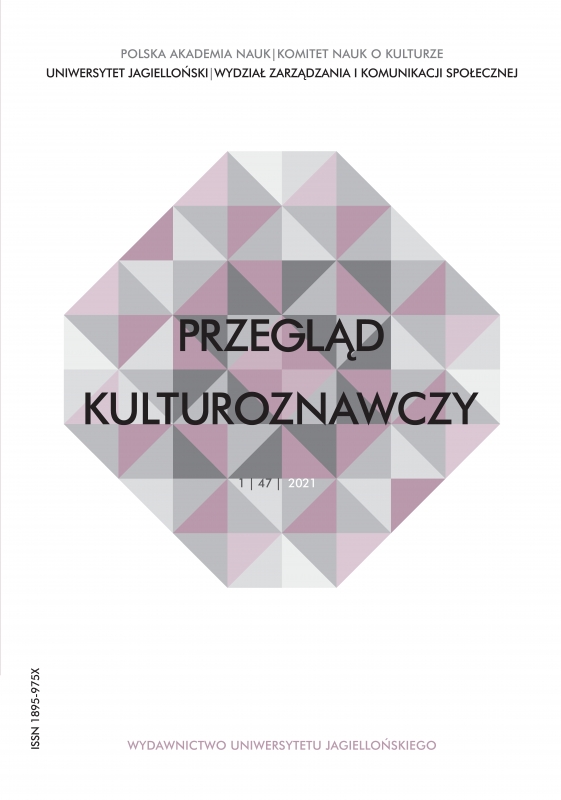
When formulating proecological strategies, social imagination is devoted relatively little attention. Contribution of the humanities to the management in the age of the Anthropocene is most often perceived as explaining threats that we and the future human and non-human beings will have to face as a result of irresponsible environmental policies. Hence, the presumed task of the humanities (and social science) consists primarily in analyzing and presenting the causes and the processes which culminated in the climate crisis and the decline of biodiversity. However, such an approach does not allow this knowledge to be actively engaged in constructing alternative, proecological attitudes. Consequently, I argue in this paper that in order for the state of affairs to change one requires not only new scientific tools (methodology, language), but also new sensitivity and aesthetics. The author argues that the challenges of the current times, resulting from environmental change, destruction of habitats and ecological disasters, direct our sensibilities and aesthetics ever more tangibly towards the fantastic: horror, science fiction, or fantasy. However, while ecohorror mainly exposes the negative aftermath of the Anthropocene – culminating in the inevitable disaster – science fiction offers leeway for a more speculative approach, enabling one to construct such visions of reality in which multispecies justice will be observed and cultivated. It is therefore suggested that there is much need for a science fiction aesthetic and narration that would be capable of guiding us out of the anthropocentric entanglement and the Anthropocene into the Chthulucene (as conceived by Haraway).
More...
The authors emphasize the importance of free zones as a key factor of economic business progress. Through the presentation of the basic regulations, the authors point out that free zones have achieved their purpose and conditions for existence and work, compared to the most successful zones in the region and the world. The authors point out that the capacity of free zones as an accelerator of economic development is insufficiently used, and that the implementation of the experiences of developing countries would significantly increase it. In a period when our country has many development priorities, a more inventive strategy for free zones would be useful at numerous levels, starting with increasing production, technological modernization of numerous activities through increased foreign exchange inflow, exports and development of certain regions of the Republic of Serbia. The authors conclude that free zones contribute to the development of companies that operate both in the zone and around the zone, and that this ultimately contributes to increasing employment in a broader sense.
More...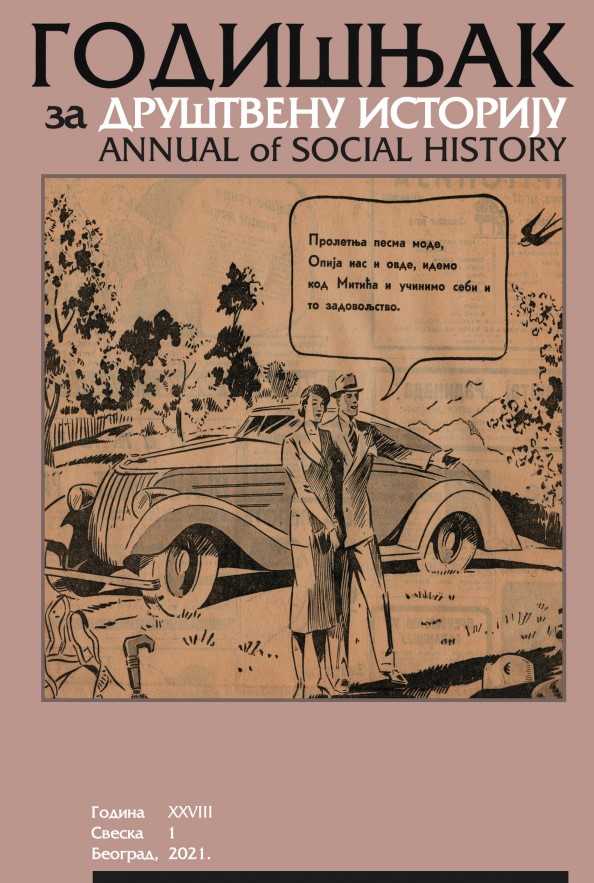
This paper shows, for the first time, the index of consumer prices calculated for Serbia before the First World War. It covers the period from the year 1862 to 1910. It is based on the fixed Robert Allen’s consumer basket and price database from the Mijatovic and Milanovic paper. The result is a Laspeyres index. In the first period, until 1889, the long-term price increase did not exist, except for short-term fluctuations. This is when the significant price increase of 2,2% starts and lasts until 1910. The basic reason for this was the state’s sales taxation policy (expanding coverage and increasing excise and monopoly rates) and monetary policy (significant money emission). One of the reasons is also the decrease in the value of silver on the world market
More...![Review of the Volume ”The Sustainable Development Theory: A Critical Approach, Volume 1 - The Discourse of the Founders” [Palgrave Studies in Sustainability, Environment and Macroeconomics], Authors: Ion Pohoață, Delia Elena Diaconașu, Vladimir Mihai](/api/image/getissuecoverimage?id=picture_2021_66169.jpg)
Sustainable development is a hot topic (pun intended) in the landscape of today’s social sciences. The subject is difficult to fairly assess and it is even more difficult to draw meaningful conclusions regarding it. Yet, its importance demands that questions be answered and answers be provided. But, in order to get to that point, it is most important to understand what the topic is really about. This is the goal of the book ”The Sustainable Development Theory: A Critical Approach, Volume 1 - The Discourse of the Founders” written by Ion Pohoață, Delia Elena Diaconașu and Vladimir Mihai Crupenschi and published by Palgrave Macmillan. The three scholars endeavour to provide a clear understanding of the concept of sustainable development, of what it is and, more importantly, what it is not. They ground their analysis in the works of the founders of economic sciences, aiming to achieve two objectives. First, they wish to provide healthy foundations to the concept of sustainable development, to ground it in historical truth and actual fact. Secondly, they wish to prove that those who planted the roots of our actual economic and social structures did not overlook the matter. The book attains both of them and thus helps the readers - both specialists and educated learners - to find their way in the jungle of ideas which is the field of sustainable development today and also prepares them to understand the modern confusion on the topic that is discussed at large in the second volume.
More...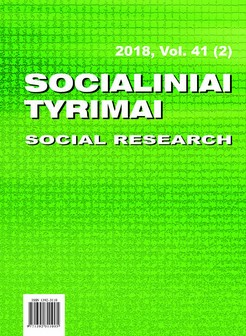
Nowadays, when economies are changing in a rapid speed, state borders are weakening, regions underpin and form larger units. In such situation, human resources and the accumulated knowledge become one of the factors determining the creation and development of business in the regions, that play an important role in regional economic growth. It should be emphasized that the creation and development of business in the regions depend not only on the implementation of the ideas of entrepreneurs themselves, the quality of human resources, technologies and innovations in the regions, but also on cooperation between business, self-government and educational institutions. According to Laužikas et al. (2014), it is not enough of person’s qualifications, professional knowledge and experience when we consider larger business opportunities. Business and its system exist in a particular environment in which different processes occur, and entrepreneurship to large extent depends on the ways in which individuals are encouraged to take business. Promotion of entrepreneurship is related to the interpretation, promotion and dissemination of business knowledge in a society and offering appropriate forms of support to create private business. It is noted that various levels of government in the European Union, national, regional or local authorities carry out various activities that promote people’s initiative, entrepreneurship and business development. Therefore, it is very important to determine what support instruments promote the creation and development of business in the regions of Lithuania. The object of the research is the support instruments that promote business creation and development. The aim of the article is to determine what support instruments promote the creation and development of business in the regions of Lithuania. To achieve the aim, the following tasks have been formulated: 1. To analyse the theoretical aspects of the influence of entrepreneurship on economic growth in the region. 2. To evaluate business development trends in the regions of Lithuania. 3. To investigate business development and development support instruments in Lithuanian regions. The scientific literature analysis, statistical analysis, and descriptive, analytical and comparative analysis methods have been employed for the research. In order to evaluate the situation of business creation and development in the regions of Lithuania, the analysis is carried out at two levels, i.e. the number of selected business indicators (the number of small and medium sized enterprises operating at the beginning of the year, the number of legal entities registered in the year, the number of registered enterprises per year, the number of persons who obtained business licenses, the number of small and medium size enterprises per 1000 inhabitants at the beginning of the year) are investigated in the territory of Lithuania which is divided into 2 regions: Capital and Central and West Lithuanian region; these indicators are also investigated in Lithuanian regions which are defined as counties.
More...
The peculiarities of microfinance and prospects of its implementation in the institutional structure of a social and economic system in general and transitional economies systems in particular are considered. Special attention is paid to the problems of investing in microfinance activity under globalization and different institutional configurations.
More...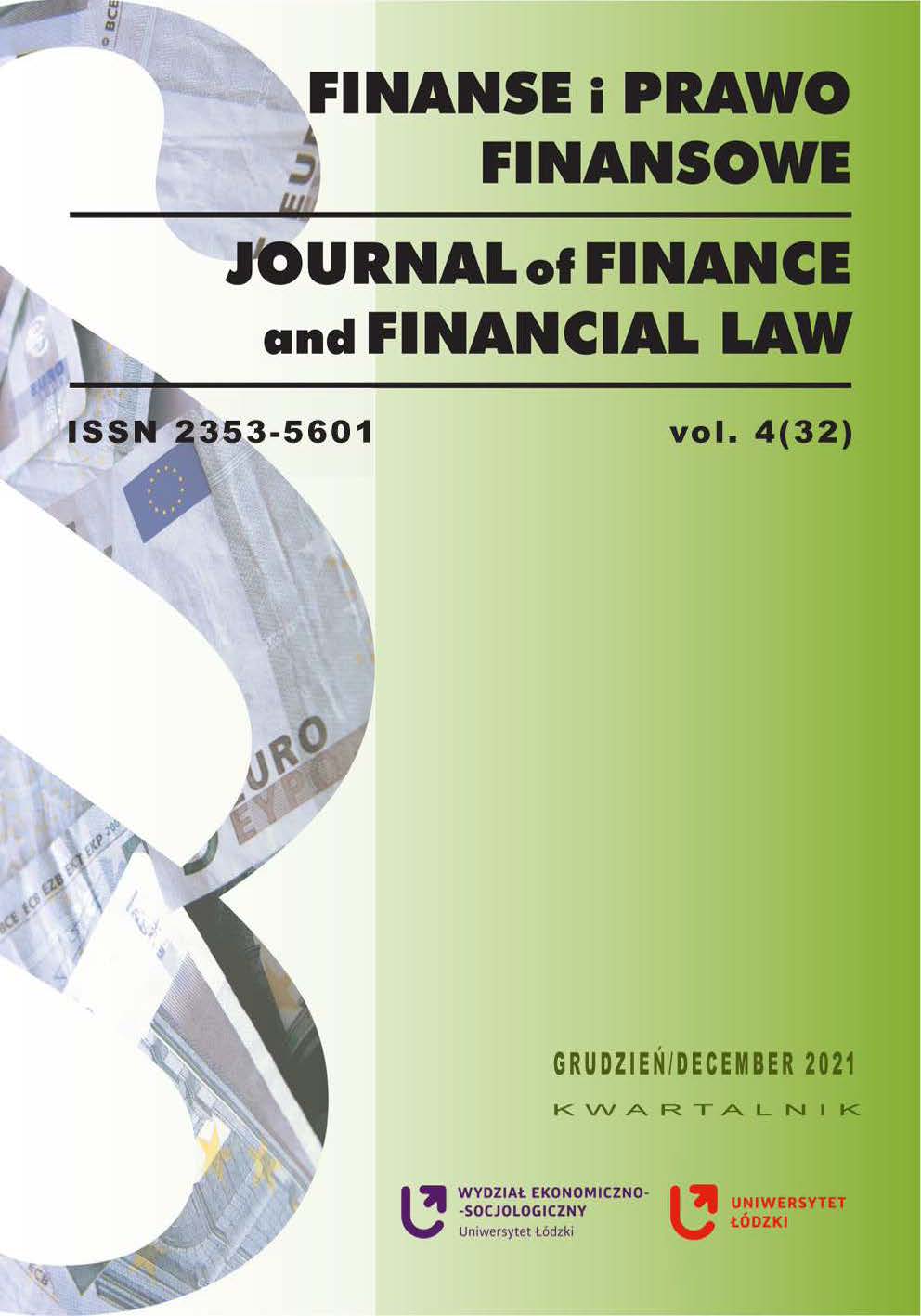
The aim of the article: The aim of the article is to evaluate and analyze the dynamics of electricity prices for households in the European Union member states (EU-27) in the period 2011–2020. The study also focuses on the key components of electricity prices in the countries analyzed. The discussed issues are important from the socio-economic point of view. It refers to the issue of sustainable development, where electricity prices are addressed in relation to the problem of energy poverty of households. Methodology: The study is of a theoretical and analytical character. In addition to the review of available dnational and foreign literature, Eurostat data on electricity prices for households in the EU-27 were analysed. Moreover, the paper presents the application of a selected cluster analysis method, i.e. the k-means method, to assess the situation of the EU-27 countries in terms of electricity prices for households in the analysed period of 2011–2020. Results of the research: The result of the analyses undertaken is a presentation of the share of VAT and other taxes and levies in the price of electricity for households. The analyses showed differences between the countries in the structure of establishing the electricity price for households. Only in three countries (Bulgaria, Hungary, Slovakia) it was found that there was no share of other taxes and levies in the electricity price. In turn, the applied k-means method contributed to obtaining the division of countries into four groups reflecting the differentiation in terms of the amount of electricity price for households in the period under study.
More...